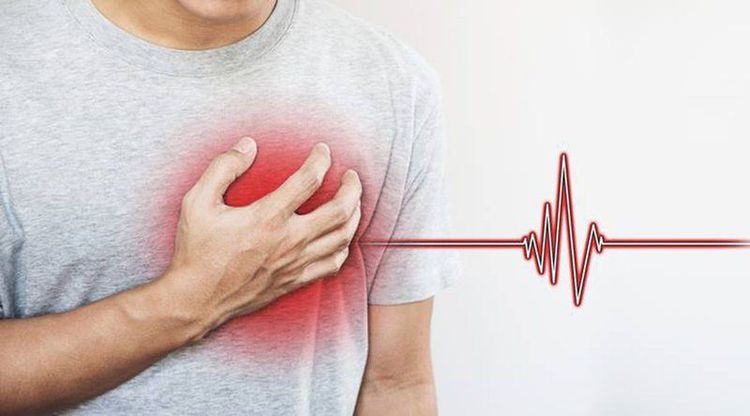This is an automatically translated article.
The article is professionally consulted by Master, Doctor La Thi Thuy - Cardiovascular Center - Vinmec Central Park International General Hospital.When hearing the term "heart failure" often causes patients to feel anxious. Heart failure does not mean that the heart "stops working," but it means that the heart is not able to pump enough to supply blood to meet the body's needs as it should. People with severe heart failure are at high risk of dying from arrhythmias and episodes of decompensated heart failure.
1. What is heart failure?
Heart failure is a chronic, progressive disease in which the heart muscle is not able to pump enough blood to meet the body's needs for blood and oxygen. Basically, heart failure makes it harder for the heart to pump blood, making it difficult for people to breathe and feel tired.In the early stages of heart failure, the heart compensates by:
Cardiac chamber dilation: The heart muscle stretches to contract harder and to maintain the need to pump more blood. Over time, the chambers of the heart become dilated Grow more muscle mass: an increase in muscle mass occurs because the heart's contractile cells become larger. This causes the heart to contract harder in the early stages of heart failure Heart beats faster (tachycardia): helps increase cardiac output The body also tries to compensate by:
Blood vessels constrict to keep for blood pressure to rise and maintain, compensating for the overworked heart The body changes blood supply away from less important tissues and organs (such as the kidneys) to the heart and brain. These temporary compensatory actions mask the signs of heart failure but do not address the cause of the heart failure. Heart failure continues and gets worse until these compensatory activities are no longer effective. At this stage, patients begin to develop fatigue, shortness of breath, and other abnormalities, so they must see a doctor.
The body's compensatory mechanisms help explain why some patients may not realize their condition until their heart function begins to decline after many years (which is also the main reason) it's worth everyone to have regular check-ups with a doctor)
2. What are the symptoms and signs of heart failure?
Shortness of breath or breathing problems: symptoms appear with exertion, at rest, or when the head is horizontal. If you have sudden symptoms of shortness of breath, you have to sit up at night and have to take your breath. Feeling tired and weak during activity Swollen ankles, legs and abdomen, weight gain. Nocturnal urination Dizziness, confusion, trouble concentrating, fainting Fast or irregular heartbeat (palpitations) Dry cough Full stomach, loss of appetite or upset stomach
Suy tim độ 1 là giai đoạn có nguy cơ suy tim
3. What are the causes of heart failure?
Heart failure can be caused by many diseases that damage the heart muscle. Specifically:Coronary artery disease: disease of the blood vessels that supply blood and oxygen to your heart. If the disease occurs, it means less blood supply to the heart muscle. When blood vessels narrow or become blocked, your heart will lack oxygen and nutrients, which will affect the heart muscle to contract Myocardial infarction: occurs when a coronary artery is suddenly blocked, interrupting the flow of blood blood supply to the heart muscle Cardiomyopathy: damage to the heart muscle. Causes can be artery disease (high blood pressure), blood flow, infection, alcohol or drugs (tobacco, drugs). May also be caused by other diseases or genetic problems Congenital heart disease Diabetes Arrhythmia (atrial fibrillation) Kidney disease Obesity Medicines: some cancer drugs (chemotherapy) can cause heart failure.

Ở cấp độ 3, bệnh nhân bị hạn chế nhiều trong vận động thể lực
4. Stages of heart failure (grade of heart failure):
The New York Heart Association (NYHA) functional heart failure classification is used based on symptoms and exercise capacity.
Please dial HOTLINE for more information or register for an appointment HERE. Download MyVinmec app to make appointments faster and to manage your bookings easily.
Source: Vietnam Heart Association, Webmd












